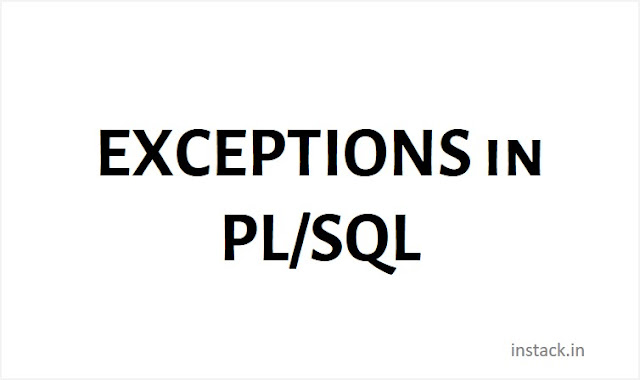EXCEPTIONS
An exception is an event, which occurs during the execution
of a program that disrupts the normal flow of the program's instructions.
Exceptions are situations which must be avoided during
program executions. Exceptions are caused by errors, invalid inputs or invalid
processing. Exceptions can lead to either program termination or generating
unexpected outputs.
PL/SQL provides a feature to handle the Exceptions which occur in a PL/SQL Block known as exception Handling. Using Exception one can test the code and avoid it from exiting abruptly. When an occur a message which explains its cause is received.
PL/SQL Exception message consists of three parts:
1) Type of exception,
2) An error code,
3) A message.
By Handling the exceptions one can ensure a PL/SQL block
does not exit abruptly.
Structure of Exception Handling
The General Syntax for coding the exception section is shown
DECLARE
Declaration section
BEGIN
Exception section
EXCEPTION
WHEN ex_name I THEN
—Error handling statements
WHEN ex_name2 THEN
—Error handling statements
WHEN Others THEN
— Error handling statements
END;
General PL/SQL statements can be used in the Exception
Block.
When an exception is raised, Oracle searches for an
appropriate exception handler in the exception section.



